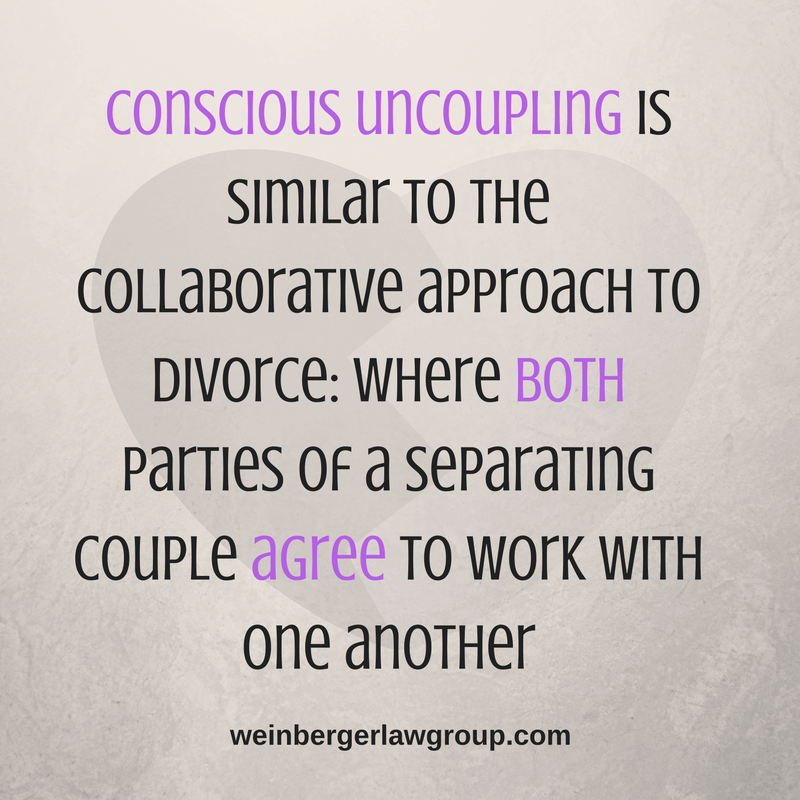Are Couples Still Consciously Uncoupling?
Conscious uncoupling had actually been around for quite some time before Gwyneth mentioned it in her statement regarding the end of her marriage. The method can be traced back to one woman, Katherine Woodward Thomas, who developed the “divorce theory” in 2010. At its most basic, conscious uncoupling is simply thinking about the consequences of your actions, and making plans rather than reacting to emotions like fear, anger or revenge.
In a legal sense, conscious uncoupling is similar to the collaborative approach to divorce: where both parties of a separating couple agree to work with one another, through the assistance of counsel, without availing themselves of the family court process. The focus is to be on the dignity of the process and the well-being of the children, without expending thousands on legal fees. The collaborative method breaks away from traditional litigation which can be tremendously adversarial and can be emotionally exhaustive for all family members.
Does Conscious Uncoupling Work?
In an article by Michael Coulter titled, “Gwyneth Was Right, Conscious Uncoupling Works” found in the Sydney Morning Herald in 2015, it appears as though this method is indeed successful for many separating couples. Coulter indicates that “what Paltrow was trying to describe was an amicable divorce in which the welfare of the children was paramount. And who could argue with that?”
Woodward-Thomas, the developer of the Conscious Uncoupling Method has several “success stories” on her website, happyendings.com, including “Julia’s” story which states, “Following the steps in the Conscious Uncoupling program, I transformed from my deepest breakdown to my most magnificent breakthrough. I now feel free, liberated and full of hope for a beautiful future in love!”
And, the consensus in the legal community seems to be that approaching the divorce process using the collaborative method rather than traditional litigation makes sense. And, one of the big draws is money. Reliable statistics on the cost of an average divorce are hard to come by, but using mediation to resolve a divorce, as opposed to court litigation, can save considerable money.
Is Conscious Uncoupling or Traditional Divorce Right for Me?
This depends solely on your marriage, your family and your particular and unique set of facts and circumstances. For example if there is a history of domestic violence in your relationship and you are afraid to be in contact with your soon-to-be ex, the collaborating or mediating in the same room, even with attorneys present, may not be the best solution for you. If you find that you are in a situation where you know your spouse is concealing assets or being otherwise dishonest regarding income or debts in the marriage, then neither party can negotiate productively or in good faith.
On the other hand, if you and your spouse are willing to set aside hard feelings and view your marriage as a business or partnership that must be equitably ended with your children’s best interests at the center of the process, then collaborative divorce/conscious uncoupling may be the best approach for you and your family. Remember, the most that you can agree upon is more that you have control over now and going forward.
If you are interested in learning more about divorce, meditation or the collaborative method, please contact us today to schedule your initial consultation with one of our qualified family law attorneys or mediators.
Read More:




